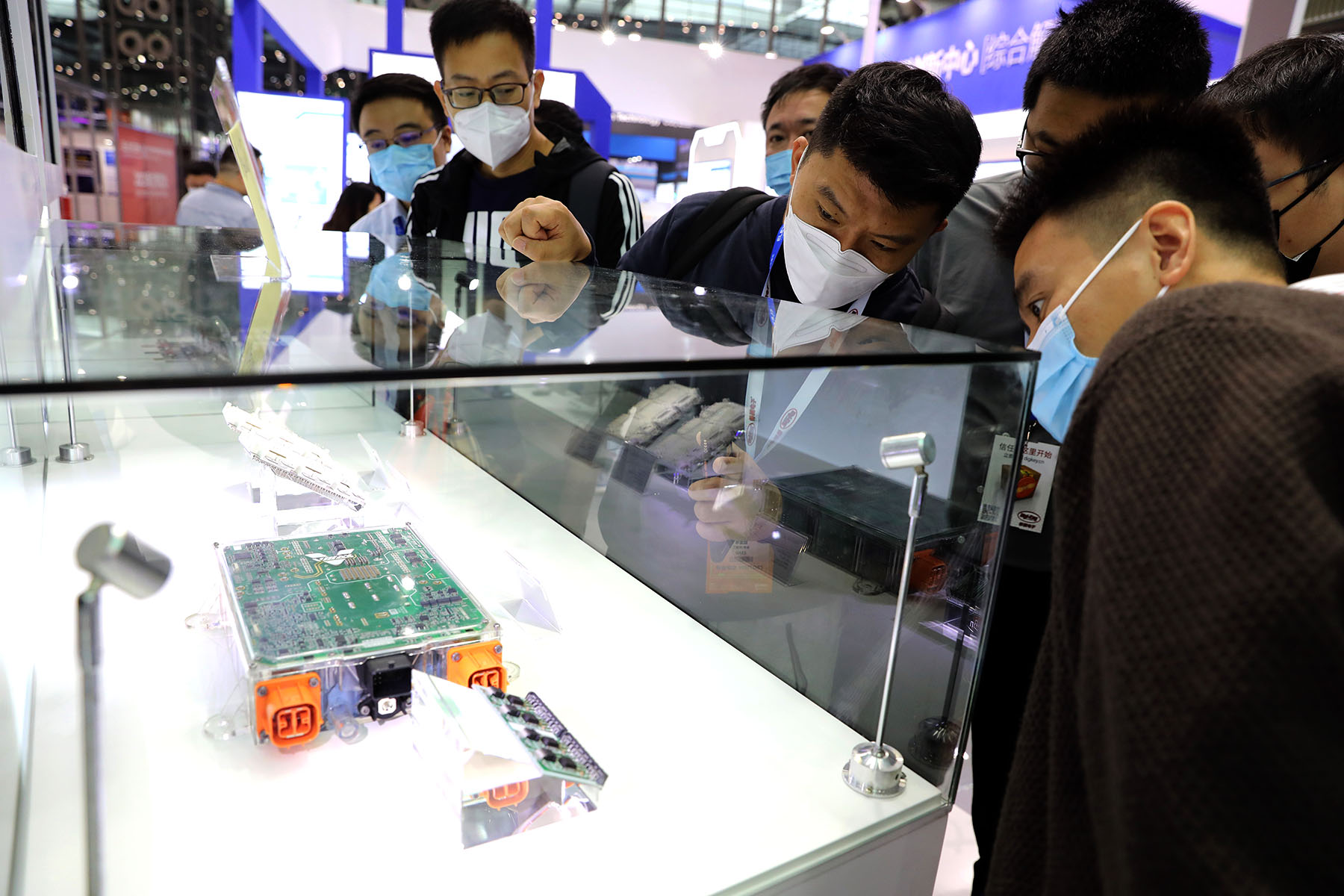
Infineon Technologies AG, the world's top automotive chipmaker, is optimistic about growth opportunities in China's rapidly developing markets, particularly in electric vehicles, wind and solar power, according to a senior company executive.
David Poon, senior vice-president of Infineon Technologies and president of Infineon Greater China Region, said the next decade will be an era driven by decarbonization and digitalization.
READ MORE: Six banks to invest in big way in IC fund
Amid the green and low-carbon transition, third-generation semiconductors, represented by silicon carbide and gallium nitride, present significant market opportunities and are increasingly applied in new energy, EVs, charging stations and energy storage.
"Infineon is continually innovating and strategically positioning itself to meet the growing demand for higher efficiency and more environmentally friendly semiconductor products," Poon said.
According to the company, China is one of the largest and most dynamic regional markets for Infineon. For nearly 30 years, Infineon has established an integrated innovation ecosystem that includes industry, academia, research and applications in China.
Poon said Infineon has introduced many localized initiatives in China to deeply understand customer needs. For example, aligning with the current trends of low-carbon and digital development, Infineon has upgraded its logistics center in Shanghai to a smart, low-carbon warehouse, providing more efficient and convenient supply chain services.
Additionally, a new sales entity of Infineon started operating in Shanghai earlier this year to further expand its local business network, offering customized logistics services tailored to the local market, thereby better responding to and meeting customer needs.
In optimizing the local supply chain, Infineon's factory in Wuxi, Jiangsu province, fully supports the production needs of its major sales segments: automotive, industrial and infrastructure, and consumer, computing and communication.
Earlier this month, Infineon said it will provide a broad range of products including silicon carbide power modules to Xiaomi's SU7 smart electric vehicle until 2027.
Huang Zhenyu, vice-president of Xiaomi EV and general manager of the supply chain department, said: "Infineon is an important partner with leading technologies and resilient manufacturing capabilities in power semiconductors as well as a highly scalable micro-controller product portfolio.
"The cooperation between the two companies will not only help stabilize the supply of silicon carbide for Xiaomi EV, but also help us build a high-performance, safe and reliable luxury car with leading-edge features for our customers," Huang said.
ALSO READ: China's electric cars find favor with Indonesians
China's automotive industry has been experiencing rapid growth and transformation. According to data from the China Association of Automobile Manufacturers, China's auto production and sales exceeded 30 million units in 2023, a historic high.
China has been the world's largest NEV market for nine consecutive years. Latest data show that in April, the production of NEVs reached 870,000 units and sales touched 850,000 units, up 35.9 percent and 33.5 percent year-on-year, respectively, the CAAM added.
In the fiscal year 2023, Infineon achieved a record global revenue of 16.3 billion euros ($17.7 billion), marking a year-on-year increase of 15 percent, driven by a focus on low-carbon and digital development, which provided long-term structural growth momentum.
According to market research company TechInsights, Infineon maintained its top position in the automotive semiconductor market with a 13.7 percent market share in 2023.


